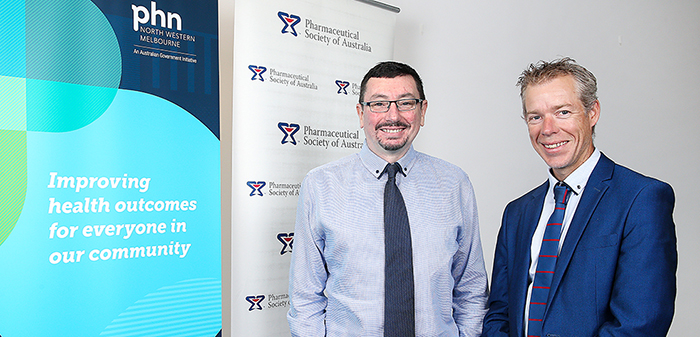
Pharmacists will be integrated into four general practices in Melbourne to support Quality Use of Medicines activities, as part of a Victorian-first program supported by North Western Melbourne Primary Health Network (NWMPHN).
The peak national body for all pharmacists, the Pharmaceutical Society of Australia (PSA), is rolling out the Pharmacists in General Practice program – a new model of care that will see non-dispensing pharmacists working at the Caroline Springs Superclinic, North Richmond Community Health, IPC Health Deer Park and Calder Medical Clinic in Keilor.
The services provided by the general practice pharmacists may vary between practices but will include:
- Patient directed activities such as identifying and resolving medication use and safety problems, medicines education and medicines reconciliation and improving relationships with other care providers including community pharmacists
- Staff-directed activities such as practice staff education sessions, answering medication information queries
- Practice based activities such as Drug Utilisation Reviews (a system of ongoing, systematic, criteria-based evaluation of drug use that will help ensure that medicines are used appropriately at the individual patient level) and advice on prescribing according to evidence-based guidelines
PSA National President Dr Shane Jackson said for the first time in Victoria, the Pharmacists in General Practice program will see pharmacists integrated within general practice working directly with GPs, practice nurses and practice managers to the benefit patients including those with complex needs.
“With the rapid rise in chronic disease, this is a timely intervention that can expand expertise in dealing with complicated conditions and deliver improved patient outcomes,” Dr Jackson said.
NWMPHN CEO Adjunct Associate Professor Christopher Carter said the program showed the importance of creating a more integrated and coordinated primary health system.
“This initiative is a really good example of how bringing our health system closer together can directly support better outcomes for patients, providers and the system as a whole,” A/Prof Carter said.
The program is based on strong evidence that a team-based model of care such as this is more cost-effective and can also improve equity and access to health services. Pharmacists can respond to complex medicinal queries, educate practice staff and support activities that enhance MBS billing.




